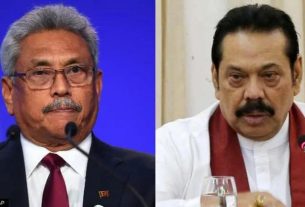- Yemen’s warring parties – particularly the Houthis, the Southern Transitional Council, and the Yemeni government – have committed serious human rights violations against journalists in Yemen.
- Targeting journalists and media institutions has encroached on freedom of expression. Many journalists have fled the country and those who remained have limited their reporting.
- UN member states should raise concerns about violations against human rights in Yemen, including against journalists, at the upcoming UN Human Rights Council session and call for the immediate release of all those arbitrarily detained.
(Beirut) – Yemen’s warring parties, including the Houthis, the Southern Transitional Council (STC), and the Yemeni government have committed serious human rights violations against journalists and media institutions in Yemen, Human Rights Watch said in a report released today.
The 59-page report, “‘We Pray to God by Torturing Journalists’: Warring Parties’ Systematic Violations Against Journalists and Press Freedom in Yemen,” documents the warring parties’ wide range of violations against journalists and media institutions, including the widespread use of arbitrary detention, enforced disappearances, torture, and other inhuman treatment. The authorities on all sides of the conflict have also carried out broader violations against Yemenis’ right to free expression and against the media, including seizing media organizations, intimidating and harassing media workers and obstructing their movement and work.
“Warring parties’ repeated attacks on journalists and media institutions have threatened the lives of dozens of journalists and have gravely undermined freedom of expression in Yemen,” said Niku Jafarnia, Yemen and Bahrain researcher at Human Rights Watch. “The authorities in Yemen should be doing everything in their power to ensure people’s basic needs and rights, rather than abusing and silencing those who are simply reporting what is happening.”
Human Rights Watch interviewed 27 people, including 16 journalists, between October 2024 and May 2025. Human Rights Watch also reviewed and analyzed photos and documents related to the cases investigated, including official documents and court indictments, among other evidence.
Human Rights Watch documented 14 cases of abuses against journalists by the Houthis, the STC, and the Yemeni government, including five who were until recently or are currently arbitrarily detained since November 2023: three by the Houthis, and two by the STC. Four were forcibly disappeared.
In some cases, authorities detained the family members of journalists either in addition to or in place of the journalist, often holding them as leverage to coerce journalists to “confess” to bogus charges or to stop them from carrying out their work.
Four journalists who were previously detained said they were severely tortured in prison, in addition to other forms of ill treatment. They said that they believed the authorities subjected them to more brutal treatment than other detainees to frighten them, and others, so that they wouldn’t report on the authorities’ abuses, mismanagement, and corruption.
Abdelkhaleq Emran, a released journalist, said that a Houthi prison authority told him that, “We pray to God by torturing journalists.”
Warring parties’ targeting of journalists and media institutions has encroached on freedom of expression in Yemen. Many journalists have fled the country due to the abuses they have faced, or their fear of abuse, by warring parties. Those who have stayed have often limited their reporting to avoid being targeted.
“Lubna Sadeq,” a freelance journalist in Aden, said that she tried to hide her identity as a journalist when traveling through checkpoints because she fears the reaction of checkpoint officials if they discover her profession. “Even in my passport, my colleagues advised me to write my occupation as “student” to avoid getting into trouble at checkpoints,” she said.
Nabil al-Osaidi, a board member of the Yemeni Journalists Syndicate, said that “The space for [journalistic] freedom has been shrinking.” He, and others, said that the authorities have been conducting surveillance of journalists and detaining them for something as inconsequential as a social media post critical of authorities.
Many journalists have been killed in Yemen over the last 11 years of fighting, including likely assassinations by warring parties. However, there have not been adequate investigations to determine who was responsible in most instances Human Rights Watch documented.
The Houthis and the STC have also seized and/or shut down several major media institutions across the country since the start of the conflict. Researchers documented five cases in the past four years, including Yemen Live for Media Production and Satellite Broadcasting, Yemen Digital Media, Sawt al-Yemen, SABA News Agency, and the Yemeni Journalists Syndicate.
Authorities in Yemen, including the Yemeni government, the Houthis, and the STC, have obligations under both international and domestic laws to protect freedom of expression, which includes journalism. Under both international and national law, they must also not arbitrarily detain, forcibly disappear, torture, or murder people.
UN member states should use all opportunities to raise serious concerns about violations of human rights in Yemen at the upcoming 60th session of the UN Human Rights Council (UNHRC), including condemning warring parties’ arbitrary detentions and enforced disappearances of journalists and other media workers, and call for the immediate release of all those arbitrarily detained.
UNHRC members should also ensure that the resolution on Yemen that will be negotiated at the 60th session, condemns these rights violations, calls on the Yemeni authorities to immediately remedy them, and requests the Office for the High Commissioner for Human Rights to monitor the situation and report to the UNHRC.
The UN special rapporteur on torture, UN special rapporteur on freedom of expression, the UN Working Group on Arbitrary Detentions, and the UN Working Group on Enforced or Involuntary Disappearances should request a visit to Yemen. They should use the visit to monitor the human rights situation and document and report on violations of human rights, including against journalists, such as arbitrary detention, enforced disappearance, and torture.
“All warring parties should immediately release journalists who remain wrongly detained and end their abusive practices against journalists and media institutions,” Jafarnia said. “The international community should also put an end to their inaction concerning the ongoing violations in Yemen and ensure that warring parties are held to account.”


